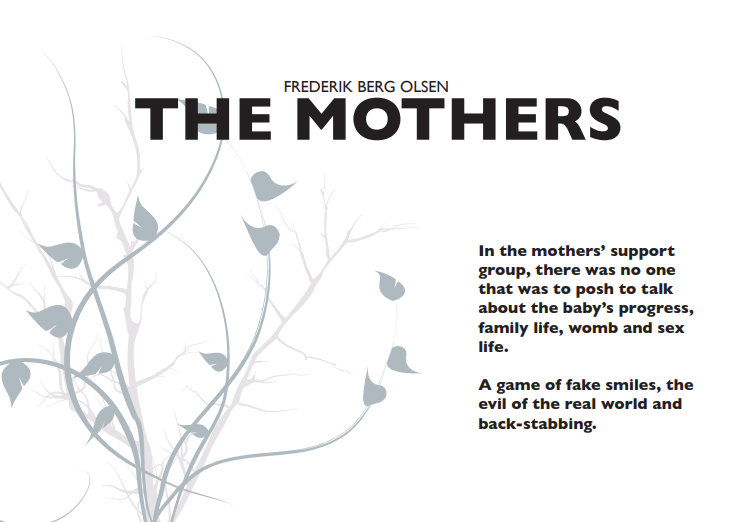In my A Game Per Year project, my goal has been to read one roleplaying game corebook for every year they’ve been published. However, I soon started to feel that it was hard to decipher how the games were really meant to be played. For this reason, I decided to start a parallel project, An Adventure Per Year, to read one roleplaying adventure for each year they’ve been published.

The Mothers is a Jeepform scenario about a support group for new mothers. It’s wonderful that the Jeep scene put so much effort into translating their games into English and making them available for free at their website. This means that it’s possible for people to read them and play them easily now, years later. Looking at the website, it’s striking how goofy the atmosphere the Jeepform scene cultivated is, considering how grim the games are!
The Mothers is about bullying, peer pressure and trying to tear down anyone who seems unacceptably happy. It feels timely now in the era of Twitter where it feels that every day there’s a new designated victim we must all hate.
The design is built on a secret, which is this: All characters except one have crashed headfirst into the difficulties and troubles of having just given birth. That one character has had a charmed existence where everything went just right. In the beginning, everyone tries to pretend that they too are having perfect lives (Instagram lives, we would say now), but eventually the troubling idea that they’re not all equal in this pretense comes out. Someone is happy for real.
The scenario looks pretty grueling to play because it runs on the mechanics of bullying and trying to tear someone down. In this sense, it’s similar to the scenario Fat Man Down, which had a similar dynamic but was about fatshaming.
The engine of the scenario is this: If we’re all miserable, we’re equal. If someone is not miserable, that means they think they’re better than us. All characters have briefs which include a word cloud. It’s full of negatives for all characters except one who has positive words, thus creating the discrepancy in how the improvisation flows during play.